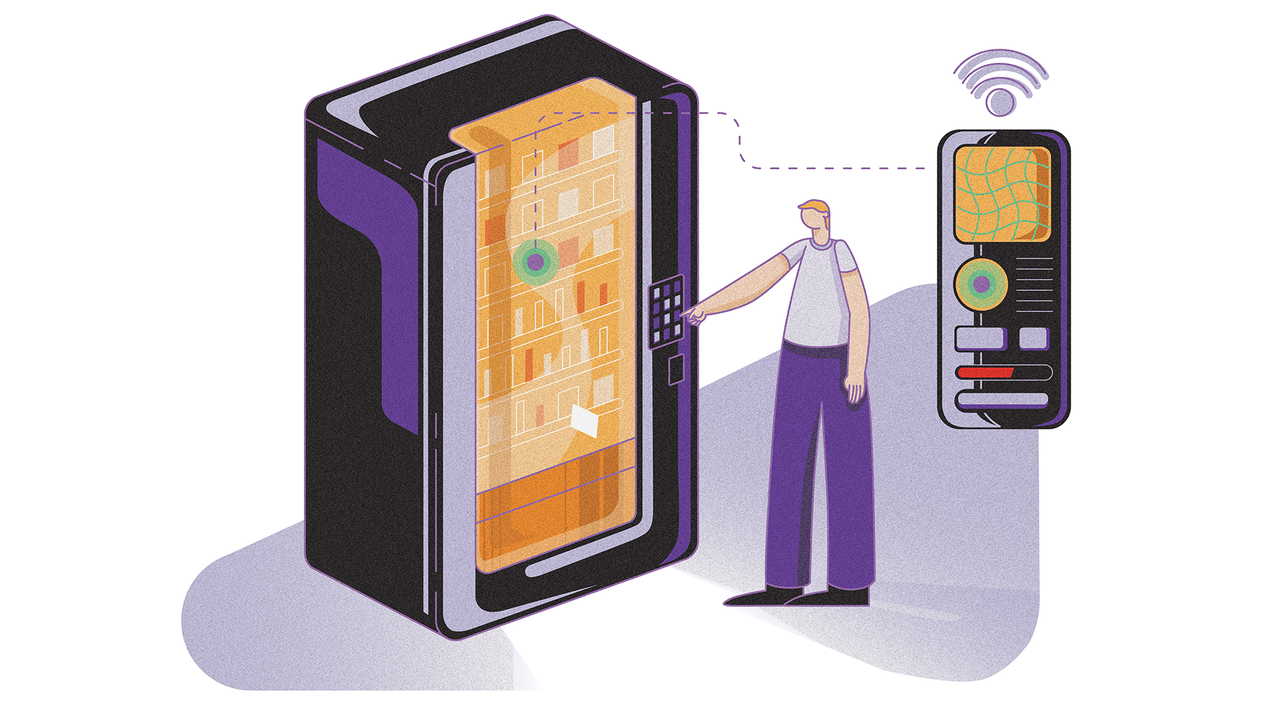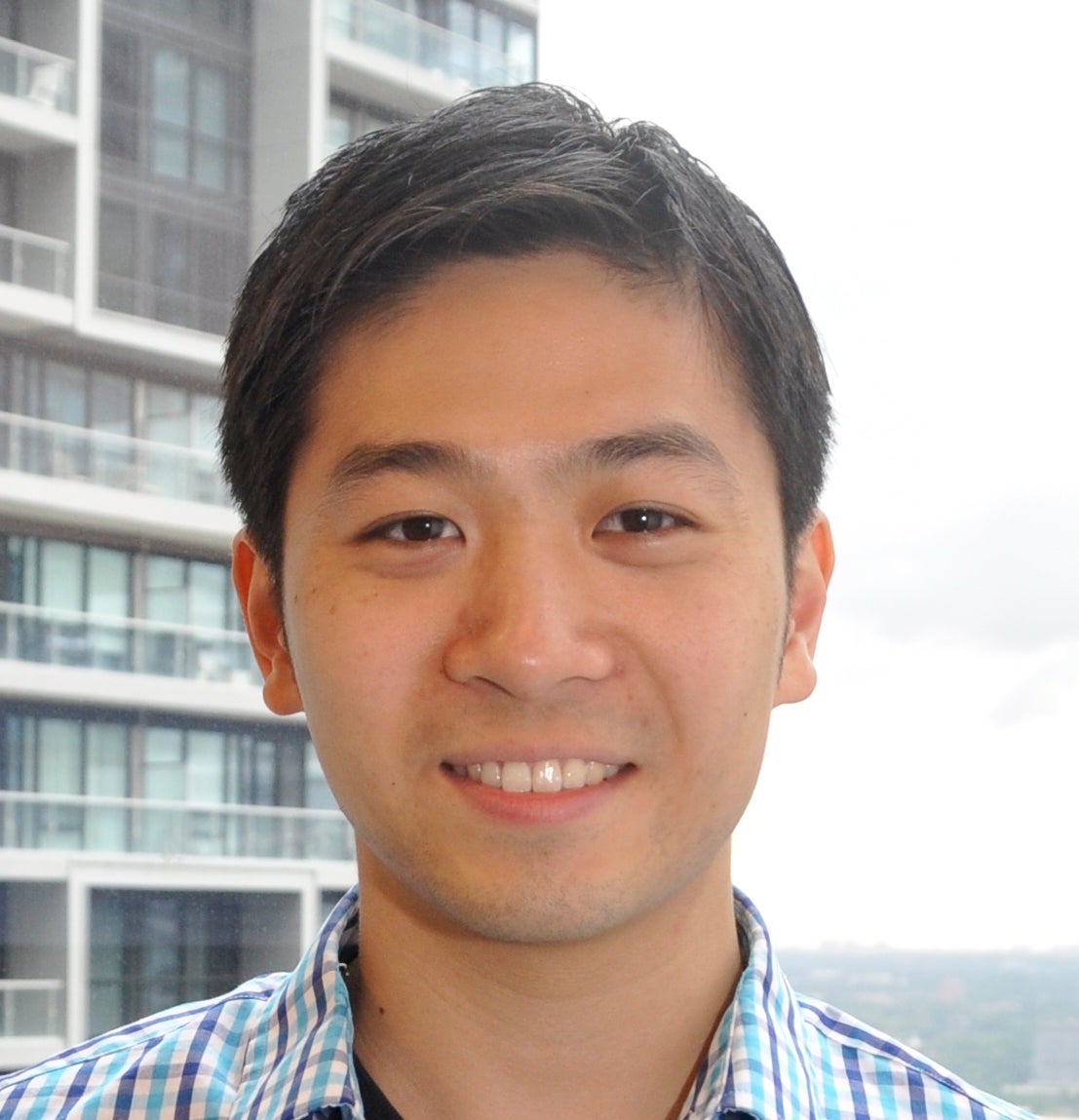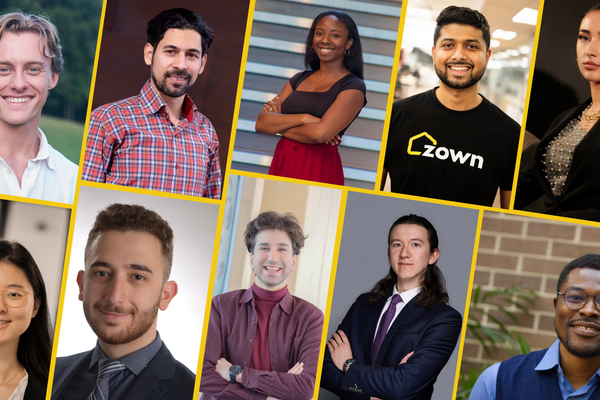
Upping the IQ of vending machines
Founder Fuel: Fourth-year design project turned business is ready to shake up the retail sector

Founder Fuel: Fourth-year design project turned business is ready to shake up the retail sector
By Faculty of EngineeringThe entrepreneurship ecosystem at Waterloo Engineering nurtures promising ideas into thriving enterprises. In our weekly Founder Fuel series, we look at new ventures and how they have benefited from that crucial early support.
In 2010, Tommy Chan and Jason Yeung (both BASc ’12, systems design engineering) were sitting in the Student Life Centre, brainstorming ideas for their fourth-year design project.
As they debated, they watched a worker laboriously taking notes of the inventory in the vending machines and then returning with dolly-loads to restock. It was a classic entrepreneurial aha moment.
At the time, vending machines were very much a low-tech, mom-and-pop industry. Chan and Yeung saw the opportunity to disrupt it using emerging Internet of Things (IoT) technology.
The pair bought their own unit for $400 and equipped it with telemetry and remote monitoring devices. They got permission from the dean of engineering to install their prototype on campus. And they proved that their technology could track inventory remotely, tell them what to refill and when, and alert them to coin jams or other malfunctions.
After graduation, a $60,000 fellowship from the University and FedDev Ontario helped them expand to a full-time business. Guidance and connections through Communitech were equally important.
“All entrepreneurs in the beginning face the same issues,” Chan says. “And that’s really where mentorship and reaching out for help matters.”
 Tommy Chan, co-founder and managing director of Adaria.
Tommy Chan, co-founder and managing director of Adaria.
Yeung agrees, stressing it takes the right personality and drive to become an entrepreneur, as well as the right support at the right time to boost the chances of success.
The result in their case is Adaria, a company that boasts 1,800 vending machines across the Greater Toronto and Hamilton Area — including units at Pearson Airport, the CN Tower and Canada’s Wonderland — making them the biggest independent operator in the region.
Now they are preparing to shake up the retail sector once again. Chan and Yeung are creating unattended “micro-markets.” Equipped with cameras, weighing sensors, artificial intelligence and a payment system they’ve recently developed, these markets could potentially replace traditional cafeterias and convenience stores.
This story first featured in WEAL 2022.

Read more
Redefining capstone learning by bringing students, faculty and community partners together to tackle real-world challenges

Read more
Here are the people and events behind some of this year’s most compelling Waterloo stories

Read more
From transforming solutions for homeownership to advancing health care interventions, Waterloo talent continues to disrupt industries and drive change
The University of Waterloo acknowledges that much of our work takes place on the traditional territory of the Neutral, Anishinaabeg, and Haudenosaunee peoples. Our main campus is situated on the Haldimand Tract, the land granted to the Six Nations that includes six miles on each side of the Grand River. Our active work toward reconciliation takes place across our campuses through research, learning, teaching, and community building, and is co-ordinated within the Office of Indigenous Relations.